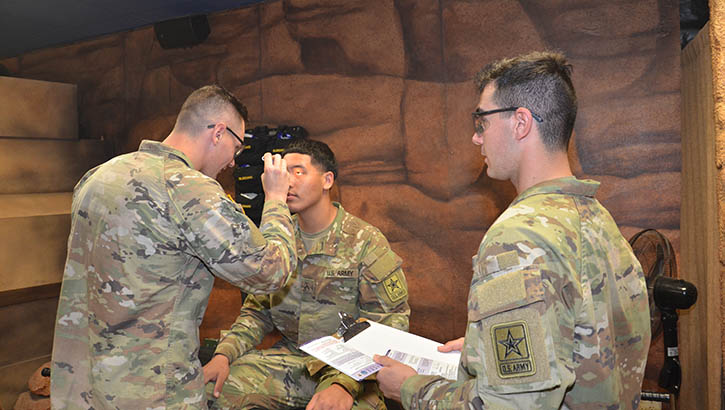Medical trials conducted on military bases are often portrayed as secure, cutting-edge, and highly regulated. Participants — whether active-duty service members, veterans, civilians, or dependents — typically enter these programs with trust in the system and hope for better outcomes. But what happens when something goes wrong? What recourse do you have if you’re injured during a clinical trial sponsored or overseen by the U.S. military?
This blog addresses the complex legal and medical realities of being injured during a medical trial on a military base. From understanding your rights to navigating military-specific legal hurdles, this guide aims to provide the clarity you deserve.
Military Medical Trials: A High-Stakes Environment
Clinical research conducted on military bases spans a wide range of experimental treatments, from combat injury recovery and PTSD therapies to vaccine development and surgical techniques. Many of these trials offer early access to promising treatments. But with innovation comes risk.
Injuries during such trials can include side effects from experimental drugs, complications from medical devices, or issues stemming from improper procedures. Unlike trials in civilian hospitals, those on military grounds often fall under a different legal umbrella — one shaped by the intersection of federal law, military regulations, and government immunity doctrines.
Informed Consent Doesn’t Mean You Waive Your Rights
Before participating, individuals are required to give informed consent, usually through a document that outlines the scope, risks, and expectations of the trial. But many mistakenly believe that signing this form means forfeiting any legal claim if things go wrong.
That’s not true.
Informed consent is meant to educate, not indemnify. If the study deviated from protocol, failed to disclose significant risks, or was conducted negligently, legal remedies may still be available — even if you signed all the right papers.
Legal Responsibility: Who Is Liable?
Determining who’s at fault depends on multiple factors: the nature of the injury, the organization running the trial, your status (service member, civilian, dependent), and how the trial was authorized.
If you’re an active-duty service member, your legal options may be limited by a longstanding legal doctrine known as the Feres Doctrine, which generally bars service members from suing the government for injuries that arise out of or are in the course of military duty. That includes participation in government-run medical trials.
However, a recent development — the 2020 update to the National Defense Authorization Act (NDAA) — allows active-duty personnel to file administrative claims for medical malpractice. This doesn’t open the door to direct lawsuits, but it does provide a path to compensation in certain circumstances, including harm caused by negligence during military healthcare research.
If you’re a civilian participant, such as a contractor or a family member of a service member, your situation is different. You may be able to file a claim under the Federal Tort Claims Act (FTCA), which allows private citizens to sue the federal government for injuries caused by its employees’ negligence. This typically involves submitting a formal claim to the appropriate military branch and may lead to compensation if the claim is successful.
And if the trial was conducted by or in collaboration with a private pharmaceutical company, you may also have grounds to pursue action against the third-party entity responsible for the negligence — a pathway more similar to civilian lawsuits.
Immediate Steps After an Injury
Time matters. If you’re injured during a clinical trial on a military base, the most important thing you can do is act quickly and responsibly. Start by reporting the injury to trial supervisors and making sure the event is formally documented. Seek immediate medical attention, ideally from a civilian provider who can offer an unbiased opinion.
Save every piece of documentation: prescriptions, consent forms, emails, photos of physical symptoms, and notes from medical staff. This paper trail could determine the success or failure of your future claim.
Most importantly, consult with an attorney experienced in military injury cases. These claims are governed by complex, overlapping laws, and a misstep in filing or jurisdiction can result in your case being dismissed outright.
Legal Barriers You May Face
Pursuing justice in the military legal system is not straightforward. You may encounter limited timelines for filing (usually two years from the date of the incident under the FTCA), jurisdictional confusion, and bureaucratic delays. Active-duty service members face even steeper hills due to the restrictions imposed by the Feres Doctrine.
Still, these cases are not impossible — particularly with evolving legal interpretations and the emergence of administrative compensation pathways. The key lies in having experienced legal counsel who knows how to navigate both the military and federal legal systems.
Compensation: What You Might Be Entitled To
If your claim is successful, you may be eligible for compensation covering a range of losses. These may include medical expenses related to the injury, loss of income, reduced earning capacity, and in some cases, pain and suffering or disability-related damages. In instances of death or long-term impairment, families may also pursue wrongful death benefits.
Keep in mind that military-specific administrative claims may not offer the same range of compensation as a civilian court, but they can still provide meaningful redress — especially in cases where traditional legal channels are blocked.
Common Misunderstandings
One of the most widespread myths is that once you’re inside the military medical system, you lose all rights. This simply isn’t true. Your rights may be narrower or require alternative legal routes, but they still exist. Another misconception is that if you signed a consent form, you’re completely out of options. Again — if your injury was due to negligence or a failure in protocol, you still may have a case.
When to Contact an Attorney
If you suspect your injury was due to negligence, procedural failure, or lack of proper oversight, do not wait to seek legal guidance. The longer you delay, the harder it becomes to collect necessary documentation, identify responsible parties, and stay within filing deadlines.
Legal claims involving military medical research are nuanced — and few attorneys are equipped to handle the combination of federal tort law, military regulations, and government immunity issues. That’s why it’s crucial to work with legal professionals who understand the unique nature of these cases from day one.
Conclusion:
Suffering an injury during a medical trial on a military base can feel overwhelming. You’re dealing not just with physical pain, but also with uncertainty, red tape, and fear that no one will be held accountable. But the truth is, you do have legal rights — and with the right team, you can pursue justice, even within the military’s complex legal structure.
If you or a loved one has been injured during a military medical trial, don’t wait. Contact Ripka Kelly LLP today for consultation. Our experienced attorneys are committed to helping military families and civilian participants understand their options and fight for the compensation they deserve.

 Call Now- Open 24/7
Call Now- Open 24/7





